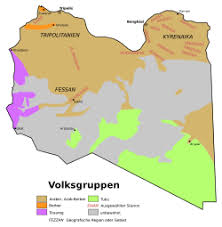Understanding Libya: Current Events and Political Landscape

Introduction
Libya, a nation rich in oil reserves and cultural heritage, has faced significant challenges since the overthrow of Muammar Gaddafi in 2011. Its ongoing political instability and civil conflict have resulted in a landscape marked by strife, making the understanding of Libya’s current events essential for grasping the complexities of North Africa’s geopolitical environment.
Political Challenges
As of late 2023, Libya continues to grapple with political fragmentation, especially seen in the rivalry between two primary governments: the Government of National Unity (GNU), based in Tripoli, and the rival administration in the east led by Khalifa Haftar’s Libyan National Army (LNA). Attempts at reconciliation have been ongoing but have often faltered due to deep-rooted divisions.
The United Nations has played an active role in mediation efforts, with peace talks aimed at establishing a unified government. However, these efforts have been hindered by continued violence and power struggles among various militia groups and political factions.
Current Events
Recent developments have spotlighted the urgency for stability in Libya. In October 2023, a series of violent clashes erupted in Tripoli, resulting in multiple casualties and drawing international condemnation. Protests over the lack of basic services, such as power and water shortages, have further amplified public discontent, highlighting the dire humanitarian situation affecting ordinary Libyans.
Additionally, the ongoing issue of armed groups exerting control over regions of Libya complicates the path to peace. The proliferation of arms and the involvement of foreign powers have not only escalated tensions but have also made it challenging for any central authority to maintain governance.
Conclusion
The future of Libya remains uncertain. Analysts forecast that without significant external support and genuine political will from Libyan leaders, the chances for long-lasting resolution remain slim. The potential for renewed conflict is palpable, yet the international community’s engagement may offer a glimmer of hope for peace and stability.
For readers, understanding Libya’s complex dynamics is crucial, not only for grasping regional politics but also for recognising global investment opportunities and humanitarian needs. As the nation navigates this tumultuous phase, its developments will resonate far beyond its borders, emphasizing the importance of Libya on the world stage.









